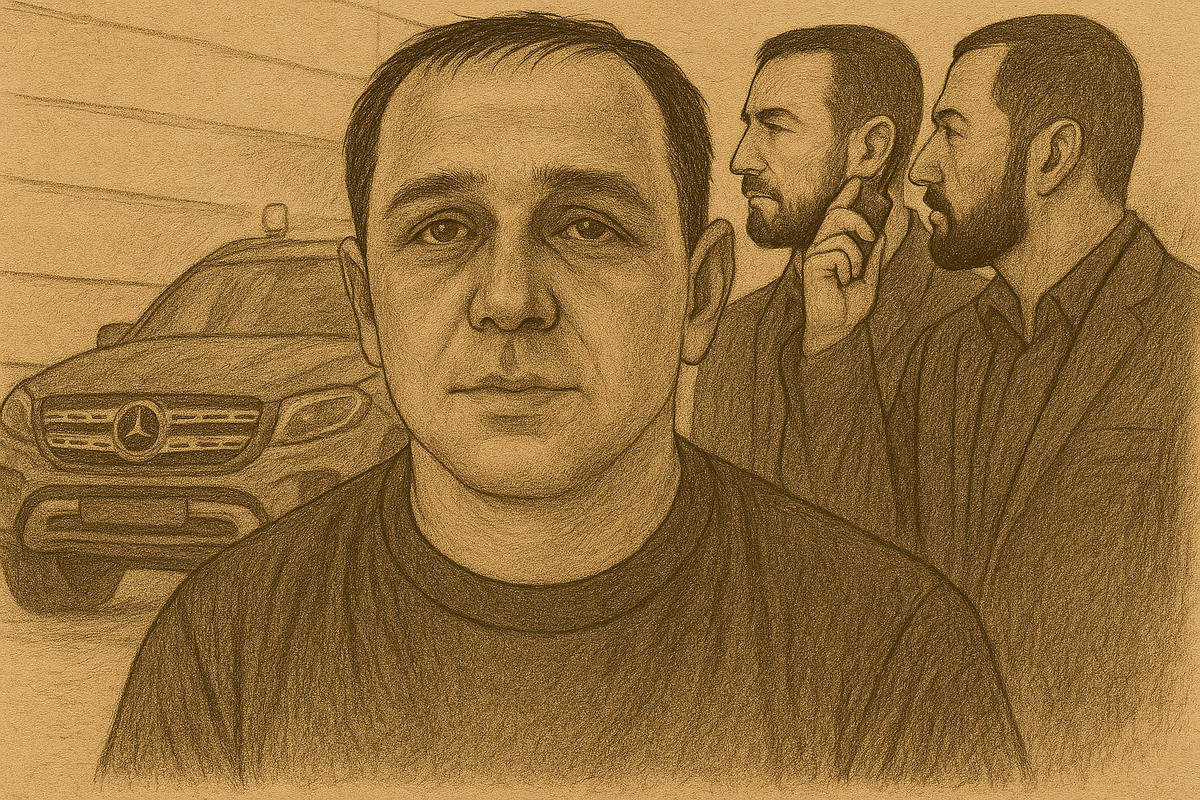Incident with Schepikhin fits into action pattern of Chechen law enforcers outside Chechnya
The kidnapping of the blogger, Areg Schepikhin, has recalled the involvement of Chechen law enforcers in the disappearance of Salman Tepsurkaev and the detention circumstances of Zarema Musaeva. The details of the incident leave open the issue of whether law enforcers in Moscow were notified of the actions of their Chechen colleagues.
On June 3, several men who spoke the Chechen language carried the 40-year-old Areg Schepikhin out of the Yaroslavsky Railway Station in Moscow. The car in the trunk of which Schepikhin was taken away was stopped, but the kidnapped man was no longer in it. Today, it became known that at night Schepikhin was released. He himself said that he was tortured to find out whether he was connected with Ukraine or the opposition.
The Schepikhin's offensive statements about Chechens and Muslims can’t justify his kidnapping, which may have been conducted by Chechen law enforcers, Sergey Babinets, the head of the "Team against Torture" (TaT)*, believes.
"I watched his videos and, to put it mildly, Schepikhin is a very strange individual. Nevertheless, what he says may be a reason for an inquiry. But kidnapping, taking away in a car trunk to some unknown place is a crime; and it cannot be justified by Areg's behaviour," Mr Babinets told the "Caucasian Knot" correspondent.
According to his version, Schepikhin's case is similar to the cases where critics of Chechen authorities were detained and kidnapped, after which they ended up behind bars or disappeared without a trace.
"We can recall the kidnapping of Salman Tepsurkaev in 2020. He was kidnapped by unknown persons, after which a video appeared on the Internet where a naked Salman was forced to sit on a bottle. It was then established that he was taken away by people in civilian clothes, among whom active policemen were later identified. Salman's tracks ended in the territory (of one of the Chechen power bodies). The fact that Schepikhin was kidnapped in broad daylight in a crowded place indicates that people who commit such things have a sort of carte blanche. If it turns out that Chechen law enforcers are behind the kidnapping, then I won’t be surprised at all, just as I won’t be surprised that no one will be punished for the kidnapping," Sergey Babinets has noted, adding that local law enforcers sometimes help their Chechen colleagues in conducting detentions outside of Chechnya.
"This was the case with the detention of Zarema Musaeva. When I arrived at the Yanglubaevs' apartment, there were several men in civilian clothes standing at the door; they were both law enforcers from Chechnya and local policemen from Nizhny Novgorod. "Policemen have the right to contact their colleagues from other regions when investigating crimes, conducting searches, detaining suspects and undertaking other actions," Mr Babinets has explained.
Ruslan Kutaev, a Chechen political analyst, believes that what happened to Schepikhin was an attempted kidnapping. "If he has systematically insulted Muslims, then they could have treated him differently, bypassing the laws," he told the "Caucasian Knot" correspondent.
In Kutaev’s opinion, the actions of the Chechen law enforcers were not coordinated with their local colleagues. "(The Chechen law enforcers) have sufficient powers to act according to their own considerations and conduct detentions in Moscow and other parts of Russia," he has noted.
The Schepikhin's case looks more like a pre-planned operation to detain a person than a kidnapping, said Amir Kolov, a retired police colonel. "When performing official tasks and having a mission plan, it is not necessary to warn law enforcers in other regions or services in order to prevent information leaks. Therefore, it is impossible to draw conclusions about a person’s kidnapping until all the circumstances of the case have been revealed,” Mr Kolov has concluded.
In his opinion, local policemen didn’t intervene because they probably knew about the detention. “They had the right to demand that documents and detention grounds be presented. If they failed to do this, they could have known about the conducted operation. But they could also have been negligent by not checking the kidnappers’ documents and allowing a possible human rights violation,” Mr Kolov has summed up.
This was originally published on the Russian page of 24/7 Internet agency ‘Caucasian Knot’ on June 4, 2025 at 03:33 pm MSK. To access the full text of the article, click here.
*The "Team against Torture" (TaT, formerly the "Committee against Torture" – CaT) was created by the lawyers who had earlier worked for the CaT, which was included into the register of the NCOs performing the functions of foreign agents.
Source: CK correspondent

